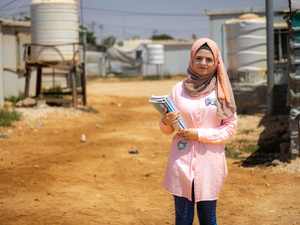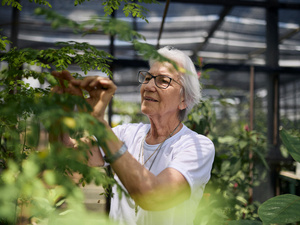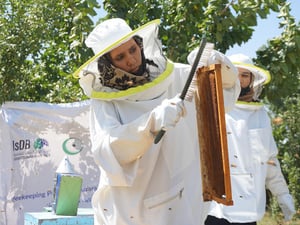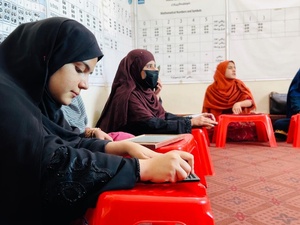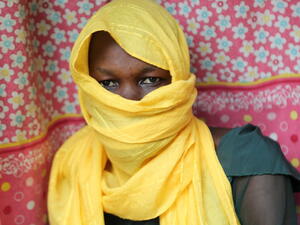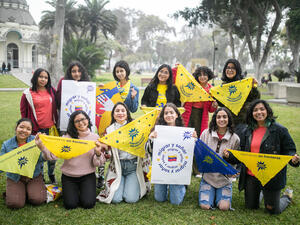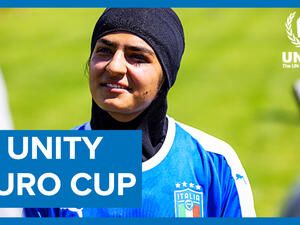UNHCR attends landmark meeting on discrimination against women
UNHCR attends landmark meeting on discrimination against women

A group of female refugees from Central African Republic in south-east Cameroon. Forcibly displaced and displaced women and girls are at risk of discrimination.
NEW YORK, United States, July 24 (UNHCR) - A landmark meeting in New York, co-organized by the UN refugee agency, has given important impetus to efforts to eradicate discrimination against forcibly displaced and stateless females, including rape, domestic violence and other abuses.
The July 16-17 seminar, the first of its kind, brought together officials from UNHCR and the Office of the High Commissioner for Human Rights (OHCHR) with 15 independent experts from around the world who serve on the UN Committee on the Elimination of Discrimination Against Women (CEDAW).
The meeting was called specifically to look at how the 1979 Convention on the Elimination of All Forms of Discrimination Against Women - a de facto international bill of rights for women - can be used to protect forcibly displaced and stateless women. CEDAW is meeting until August 7 to review countries' implementation of the Convention.
A number of important so-called "general recommendations" and "commitments" were agreed upon with the CEDAW members to increase awareness about discrimination against women of concern and to bolster the Convention's power to protect and help them through better use of existing reporting and complaint mechanisms.
"This is a breakthrough," said UNHCR Chief Protection Policy and Legal Adviser Oldrich Andrysek, who attended the meeting. This was echoed by Pierre Bertrand, director of UNHCR's New York office, who told the opening session, "This seminar is a milestone in our collective efforts to ensure that the rights of displaced and stateless women and girls are fully respected."
Others stressed the importance of governments and international organizations in ensuring progress. "The violations that women experience . . . will never be dealt with appropriately until justice issues receive sufficient attention both nationally and internationally," said Craig Mokhiber, deputy director of OHCHR's New York office.
The seminar participants also heard powerful and sometimes harrowing testimonies from former refugees from Bhutan, Liberia, Mongolia and Zimbabwe as well as two internally displaced women from Chechnya and Kenya. "Discrimination against women is everywhere," said one of the women, a widow who suffered abuse.
"The fact that refugee women gave testimonies and that the often forgotten situation of refugee and stateless women was discussed in detail allowed us to spotlight and deal with the problems women face," UNHCR's Andrysek noted.
Forcibly displaced women and girls, and women seeking to integrate into new societies or reintegrate in post-conflict countries, are frequent victims of multiple forms of discrimination and sexual violence. Yet there remains a persistent culture of denial, neglect and impunity around this growing problem.

